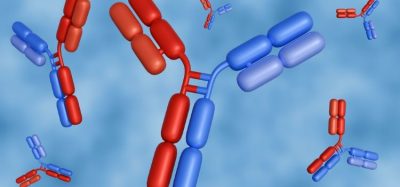Genomic sequencing is a potential key to precision medicine for cancer
Posted: 28 July 2021 | Anna Begley (European Pharmaceutical Review) | No comments yet
A new US study demonstrated that comprehensive genomic sequencing is crucial for the development of precision medicine for cancer patients.


Research conducted by scientists at St Jude Children’s Hospital, US, has shown that comprehensive whole genome, whole exome and RNA sequencing of paediatric cancer patients is feasible and essential to unlock lifesaving potential of precision medicine.
The team offered whole genome and whole exome sequencing of germline DNA to 309 patients. Whole genome, whole exome and RNA sequencing of tumour DNA was carried out for the 253 patients for whom adequate tumour samples were available.
The results showed that 86 percent of patients had at least one clinically significant variation in tumour of germline DNA. The team believe these findings were only possible through the genomic sequencing as, according to them, almost two-thirds of the germline variations identified would not have been detected based on current screening guidelines. “Some of the most clinically relevant findings were only possible because the study combined whole genome sequencing with whole exome and RNA sequencing,” said co-corresponding author Jinghui Zhang.
Tumour sequencing guided the change in treatment for 12 of the 78 study patients for whom standard of care was unsuccessful. In four of the 12 patients, the changes stabilised disease and extended patients’ lives. Another patient, one with acute myeloid leukaemia, went into remission and was cured by blood stem cell transplantation.
“Through the comprehensive genomic testing in this study, we were able to clearly identify tumour variations that could be treated with targeted agents, opening doors for how oncologists manage their patients,” added Kim Nichols, St Jude Cancer Predisposition Division Director.
By sharing the data from genomic sequencing, the team aims to speed advances in understanding and treatment of paediatric cancer. “Even the most treatable cancers are not curable in all patients. For example, relapse remains the leading cause of death for the most common childhood cancer, acute lymphoblastic leukaemia,” said Nichols. “Being able to understand and predict which patients will respond to treatment and which will not requires collecting comprehensive genomic data on all patients.”
The study was published in Cancer Discovery.
Related topics
Anti-Cancer Therapeutics, Clinical Trials, Data Analysis, DNA, Gene testing, Genomics, RNA, Screening, Sequencing
Related organisations
Related people
Related diseases & conditions
Acute lymphoblastic leukaemia (ALL), Acute myeloid leukaemia (AML), Cancer









